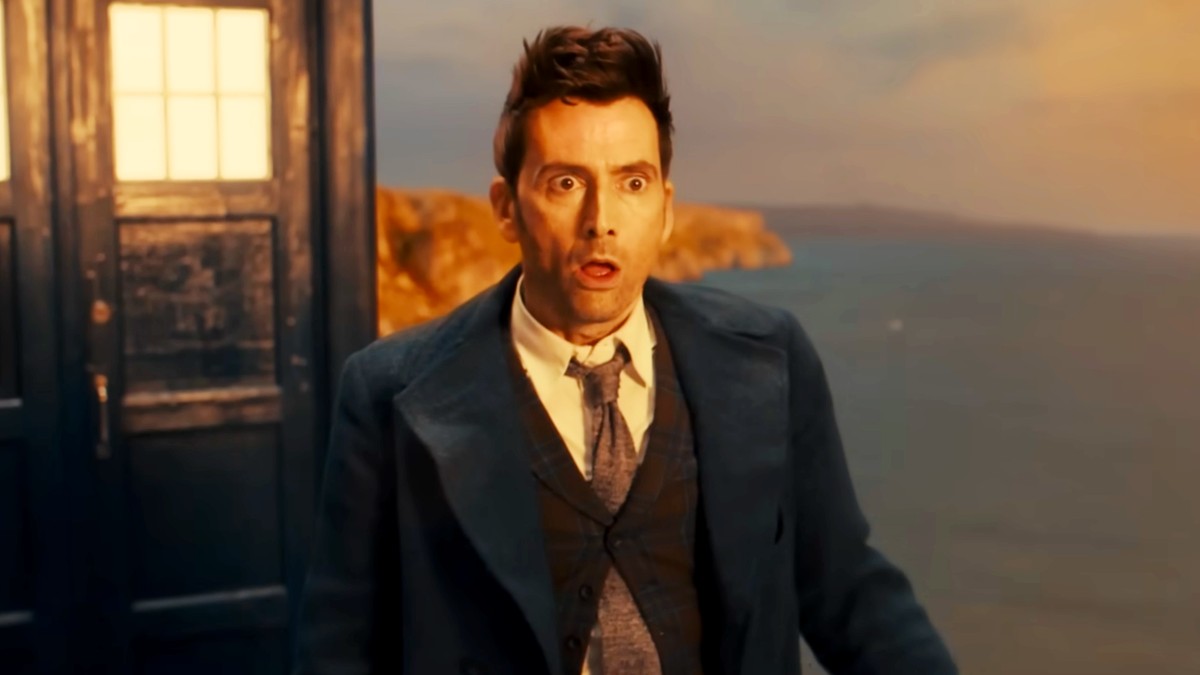Here’s What You Need To Know About ‘Doctor Who’s Shocking Regeneration Twist

Doctor Who fans have been accustomed to the show’s regeneration concept for almost 60 years. However, the show has now introduced a new form of regeneration that fundamentally impacts the show.
Spoilers ahead for Doctor Who’s 60th anniversary special “The Giggle.“
Both diehard and moderate fans of Doctor Who will know how the regeneration process works. While it was undoubtedly a shocking idea in 1966 when it was introduced, it has become one of the most defining aspects of the show. To get around the problem of actors aging or moving on to new projects, Doctor Who introduced regeneration. The Doctor, an alien Time Lord, can regenerate when they reach old age or are fatally injured. It’s not much different than how our cells regularly replace themselves over time. However, in this case, the Doctor regenerates all their cells simultaneously, resulting in a new physical body with a unique personality.
There have only been a few minor changes in the regeneration process in the show’s history. Although the Doctor initially only had 12 regenerations, they were later granted more, a predictable change for the show to keep going. The only other major change was when the Thirteenth Doctor (Jodi Whittaker) regenerated into the same body as the Tenth Doctor (David Tennant). It was the first time the Doctor regenerated into a past face, but it didn’t feel too significant since fans knew Ncuti Gatwa had already signed on to be the new Doctor. Thus it was assumed to be a fun way to bring Tennant back temporarily for the Doctor Who 60th-anniversary specials. However, fans have now learned that Tennant’s return wasn’t temporary due to a new concept called bi-generation.
What is bi-generation in Doctor Who?
Viewers had quite a shock at the end of the Doctor Who special, “The Giggle,” when the Fourteenth Doctor (Tennant) begins regenerating after being killed by the Toymaker (Neil Patrick Harris). Surprisingly, he doesn’t regenerate into Gatwa’s Doctor immediately. After the regeneration process happens, he still looks like Tennant. That is until he’s pulled apart, and it’s revealed that he’s now two people—Tennant’s Fourteenth Doctor and Gatwa’s Fifteenth Doctor. Everyone on the show utters a resounding, “What?!” So, what did happen?
It turns out the Doctor bi-generated. Instead of regenerating into a new person, the newest incarnation of the Doctor was able to split from the old one, creating two separate Doctors. Both still have the Doctor’s memory but have a distinct physical body and personality. They did split the clothes the Fourteenth Doctor was wearing, with the Fifteenth Doctor getting his underpants, shoes, shirt, and tie to ensure he was appropriate for the camera. However, they’re more like twins than like clones.
Then, of course, the TARDIS also bi-generated to give each of them a TARDIS and allow them to live separate lives. As for how the bi-generation happened—we’re not entirely sure. The Doctor indicated the concept was known but thought to be a myth. It appears to have happened spontaneously, and it’s unknown if it will occur again. Just like cells can regenerate, though, they can also split, so this is likely where the bi-generation process comes from.
What does bi-generation mean for Doctor Who?
The bi-generation appears to be permanent in Doctor Who, as “The Giggle” ends with the Fourteenth Doctor hunkering down with Donna Noble (Catherine Tate) and her family while the Fifteenth Doctor prepares to take on the Doctor’s typical role of traveling the galaxy and saving the world. It’s unclear if the Fourteenth Doctor’s story is over or if he’ll return in the franchise’s future since he’s still a part of the universe.
However, Doctor Who showrunner Russell T. Davies warned fans that the bi-generation is “bigger than you think.” Davies hit fans with the idea that the bi-generation impacted all of the Doctor incarnations. He suggested every past incarnation split from the Doctor and is now living in a splinter timeline, thus creating a “Doctor-verse.” Still, Davies suggested that all these past Doctor won’t be explored in the main show, stating that Tennant was “parked,” and the show would be about the new Doctor who “is out amongst the stars.”
So, perhaps the bi-generation won’t impact the main series noticeably. The continued existence of other Doctors and the Doctorverse, though, creates the possibility for some spinoff series or movies featuring past incarnations.
(featured image: BBC)
Have a tip we should know? tips@themarysue.com